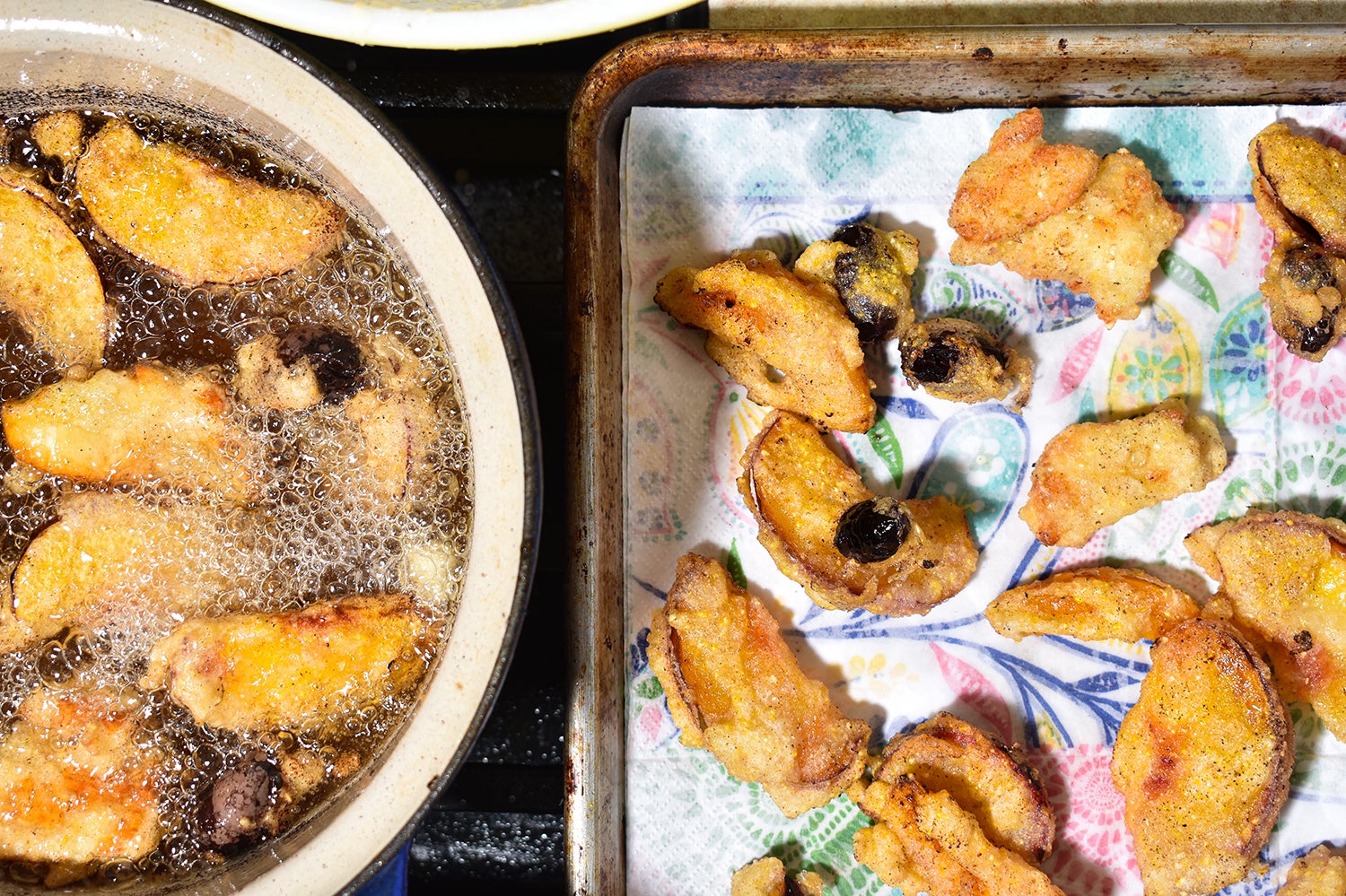Sure, it’s easy to dream about a life of fruit perpetually ripening on the counter, perfectly timed for juicy desserts and lush salads. Alas, not every peach is redolent with summer’s sultry perfume, worthy to be served au naturel, say, in a gleaming fig-leaf-lined copper bowl, like certain restaurants do out here in California.
My favorite stone fruit is the pluot—especially one that was nurtured perfectly, so its acidity and sweetness link up on their own personal flavor dance floor and its bouquet is distinctly recognizable as both plum and apricot. But, inevitably, unripe pluots and all kinds of other stone fruits make their way into our lives, whether we do our shopping at a New York City bodega or a California farmers’ market. So, what do we do? Turn those underripe slices of apricots and nectarines into a fritto misto, transforming them into something reliably enjoyable, even copper-platter-worthy.
In Italy, fritto misto is typically simply a combination of battered fried things that changes based on what’s in season and available in the region. This rotation of fried talent keeps the dinner table exciting, whether it be a mix of crispy little fish, zucchini ribbons, or wedges of slightly sweet stone fruit. Giving this treatment of intense heat to stone fruit concentrates its flavor, turning it slightly jam-like and even a little sweeter than if eaten in raw form, with the crust adding crunch and protecting the warm fruit.

I like to keep each bite interesting, so I add halloumi and pitted olives to the mix, which makes the dish feel Greek, but this is a fritto that could be from anywhere. A little honey, chile, and some freshly chopped herbs like chives and parsley turn the experience into a tasty, almost perfunctory motion of “pick up delicious fried thing, put in mouth, enjoy, and repeat.”
The batter itself is made from simple, everyday ingredients: all-purpose flour, cornmeal, and salt. I make a slurry with milk (but water works fine, too). The effect is a batter that crisps up, feels rustic, and really sticks to the stuff it touches, which is very important here, because stone fruit—even unripe stone fruit—can soften if not properly coated.
To keep sogginess at bay, it’s a good idea to use very firm stone fruit, so stick with the stuff that’s still several days away from ripeness. Even though I’m into the notion of letting nature do its thing, sometimes it just takes too long, and so I adapt, getting to that good, “copper bowl–worthy” stuff a little faster.